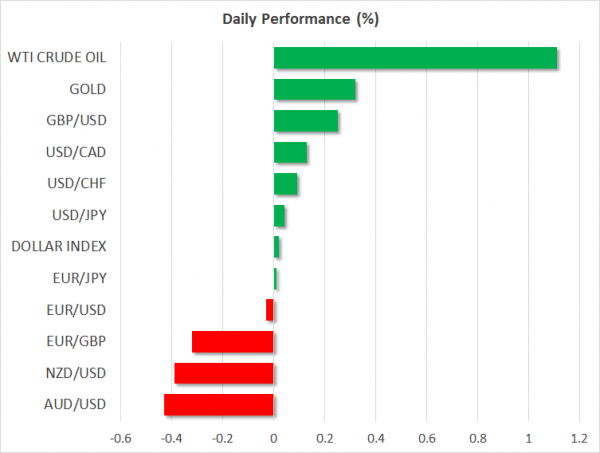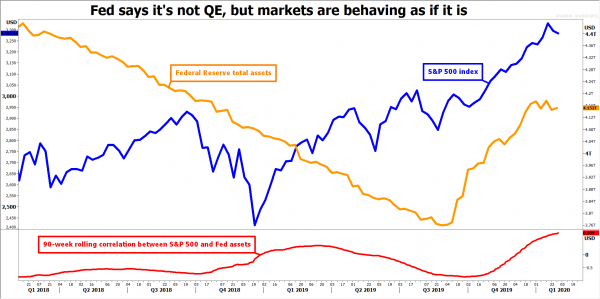- Stocks stage major comeback as investors brush aside virus fears
- However, aussie and kiwi tell a different story – both drop substantially
- Is the Fed’s ‘not QE’ responsible for the divergence between stock and bond/FX markets?
- Pound roars higher as BoE keeps rates unchanged
Stocks recover, as health officials soothe contagion concerns
The market’s rollercoaster ride continued Thursday, with US equities recovering substantial losses to close into the green, even though earnings from heavyweight tech players like Facebook (-6.1%) and Microsoft (+2.8%) painted a mixed picture. Oil prices moved in similar fashion, rebounding late in the session, while the defensive Japanese yen surrendered early gains.
At the heart of this turnaround in mood were some remarks by the World Health Organization, which declared the coronavirus a global health emergency, but also argued against trade or travel restrictions, and commended China’s swift response. The cool response seemingly calmed some nerves about contagion, reigniting hopes that most of the ‘damage’ may be contained to China.
But aussie, kiwi, and bonds having none of that – Fed to blame?
However, other segments of the market weren’t as cheerful. Both the aussie and the kiwi plunged – even against an already-weak US dollar – and continue to drop today, the aussie approaching a decade low again. One might argue that this is a logical phenomenon considering the close trading ties that Australia and New Zealand have with China, and therefore the potential spillover effects on both economies if Chinese growth takes a severe hit.
That would make sense, if the bond market was also in line with the optimistic mood – and it’s not. US Treasury yields fell notably yesterday and continue to retreat today, very much in lockstep with the commodity currencies, signaling that investors are still playing ‘defense’ despite the recovery in stocks.
So what might be driving this divergence between the stock market on the one hand, and the bond and FX markets on the other? A simple answer may be investors’ expectations around corporate earnings, as the vast majority of S&P 500 companies that have reported results for Q4 so far have smashed expectations.
Alas, that answer may be missing the forest for the trees. Rather, the overarching driver of this divergence is likely the Fed’s expanding balance sheet. While Fed officials have repeated over and over that this is ‘not Quantitative Easing’ (QE), markets are certainly behaving as if it is, with an abundance of liquidity pushing investors further out into the risk spectrum, which ultimately benefits stocks.
The bottom line is that in an environment flush with liquidity, movements in the S&P 500 are probably not an ideal barometer for how worried traders are with issues like the coronavirus, and that currency moves may be a better signal instead.
Pound skyrockets as BoE keeps its rate powder dry
The British pound rose through the roof on Thursday, after the Bank of England (BoE) kept interest rates unchanged via a 7-2 vote. Policymakers highlighted the strong rebound in the post-election survey data, but also warned that unless the ‘hard data’ show a similar improvement, then a rate cut may still be needed down the road to boost the economy.
Regardless, since investors viewed the prospect of a rate cut as a coin toss ahead of the decision, the BoE’s steady hand and mild optimism about the economy were enough to catapult the pound higher as near-term easing expectations were priced out. That said, markets are still discounting a full rate cut by November.
Focus now shifts to the ‘hard data’, but with nothing on the calendar for next week, the pound might instead take its cue from any Brexit news, as the negotiations are set to resume soon. The UK officially leaves the EU tonight.
Busy calendar day ahead
It’s a busy session for economic data. In the euro area, preliminary inflation figures for January and GDP data for Q4 are due.
In the US, personal income and consumption numbers for December are coming out, alongside the core PCE price index for the same month.
Canadian GDP figures for November are also due.


